State of the Charities Sector poll for New Philanthropy Capital
In January 2014, Ipsos was commissioned by NPC to conduct a short survey looking into the public’s views on the state of the charity sector.
Encouragingly, a third (32%) say that their views towards charities have become more positive in the last three years, compared with a quarter (23%) whose views have become more negative, creating a ‘net positive’ score of +8. Negativity increases with age; 18-34s have a net positive score of +23, falling to +6 amongst those aged 35-54 and-1 amongst those aged 55+.
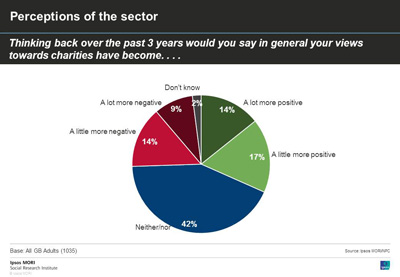
Key drivers of dissatisfaction are around spend – for two fifths (42%) the fact that charities spend too much money on executive salaries is a key reason to be dissatisfied, and, for 36% it is the fact that they are not transparent about how they spend their money. For three in ten (29%) it is the fact that they spend too much money abroad. Only 4% think that the lack of impact that charities have is a key thing that they are doing wrong, rising to 7% of DE respondents. A quarter (23%) cite the fact that charities are delivering public services that should be delivered by the state.
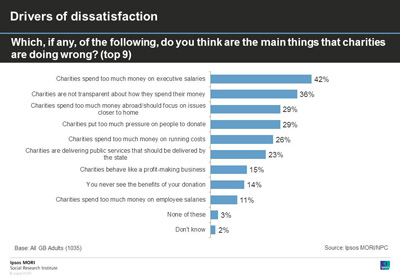
When we asked about what charities should be doing (as opposed to what they actually are doing) over half (56%) think that they should be helping communities but just a third (35%) think that they spend their time doing this. Conversely, fewer (51%) think that they should be raising money for good causes compared with the proportion who feel that they spend time doing this (55%).
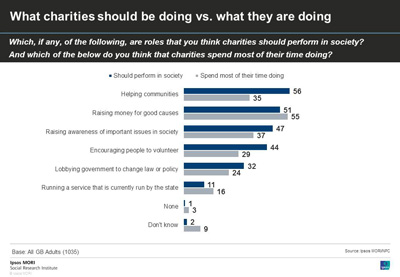
Three fifths (58%) think that a charity CEO should earn less than an MP on £66,000, with 16% who feel that they shouldn’t be paid at all (the average salary of a charity CEO is just under that of an MP, at £60,000). There are key differences in terms of affluence, with those in higher social grades more likely to advocate higher pay for charity CEOs compared with those in lower social grades.
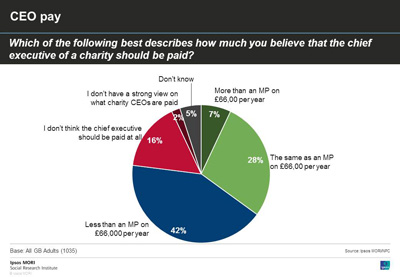
On the question of impact, we recorded a broadly even split of opinion, with 48% who pay attention to evidence of it when donating, and 50% who do not. Likelihood of doing so increases with affluence, from 38% of DEs to 56% of ABs.
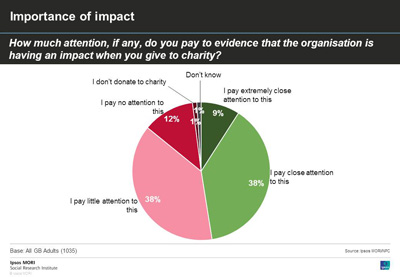 Downloads
Downloads
Technical Note
Ipsos interviewed a representative sample of 1035 adults aged 18 and above across Great Britain. Interviews were conducted by telephone 11-14 January 2014. Data are weighted to match the profile of the population.
Where percentages do not sum to 100 this may be due to computer rounding, the exclusion of ‘don’t know; categories, or multiple answers. An asterisk (*) denotes any value of less than half a per cent.
Data is based on all adults.



